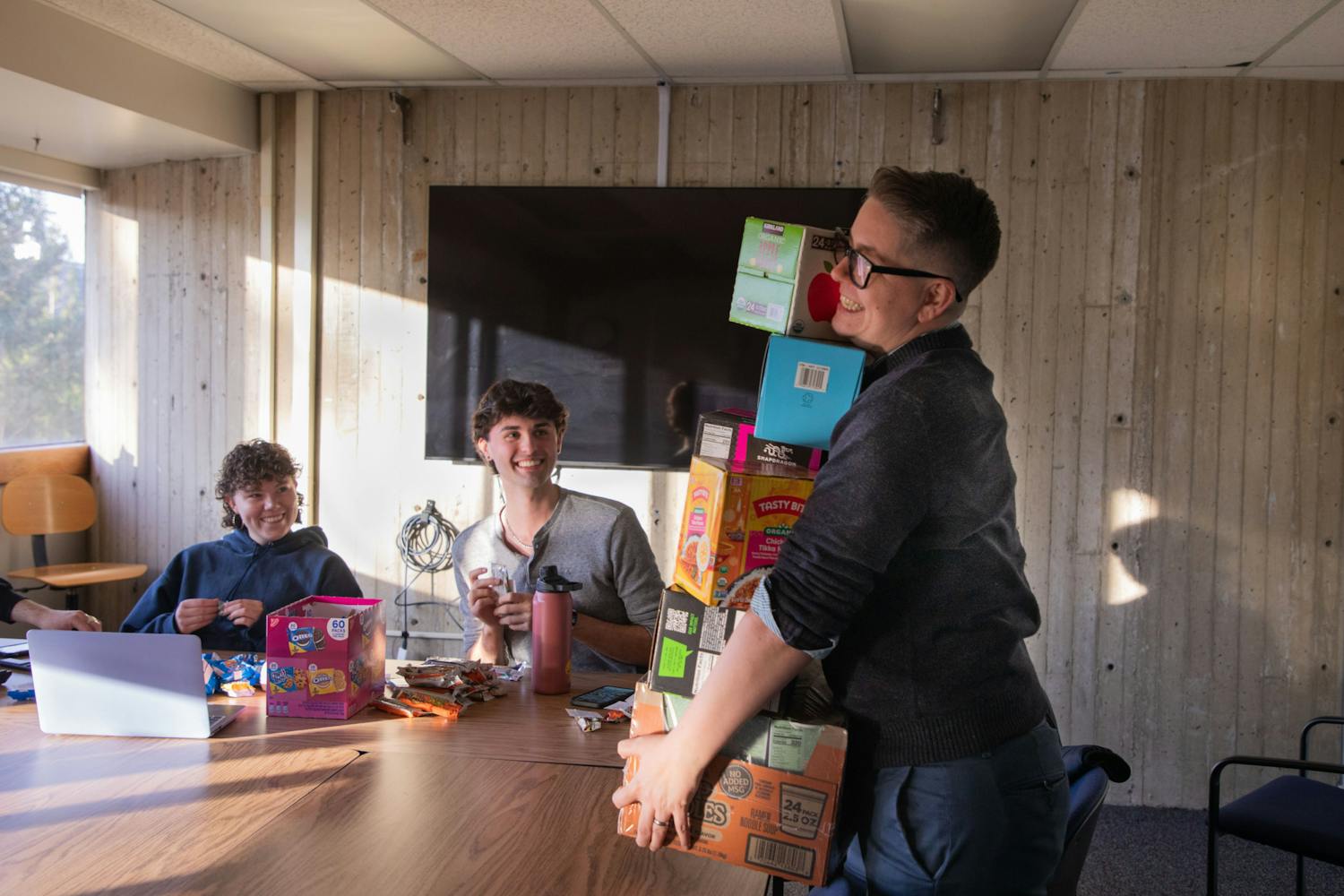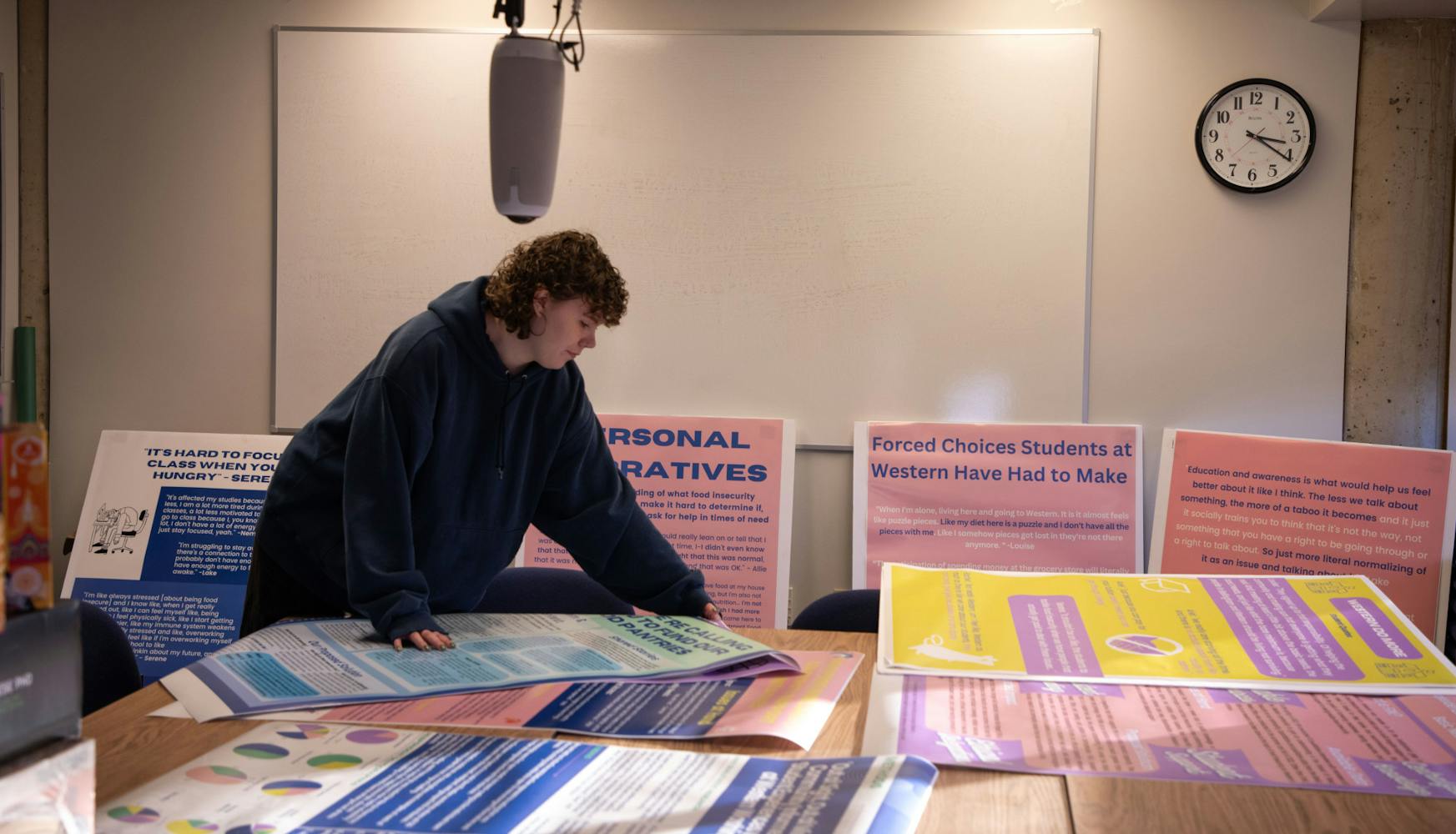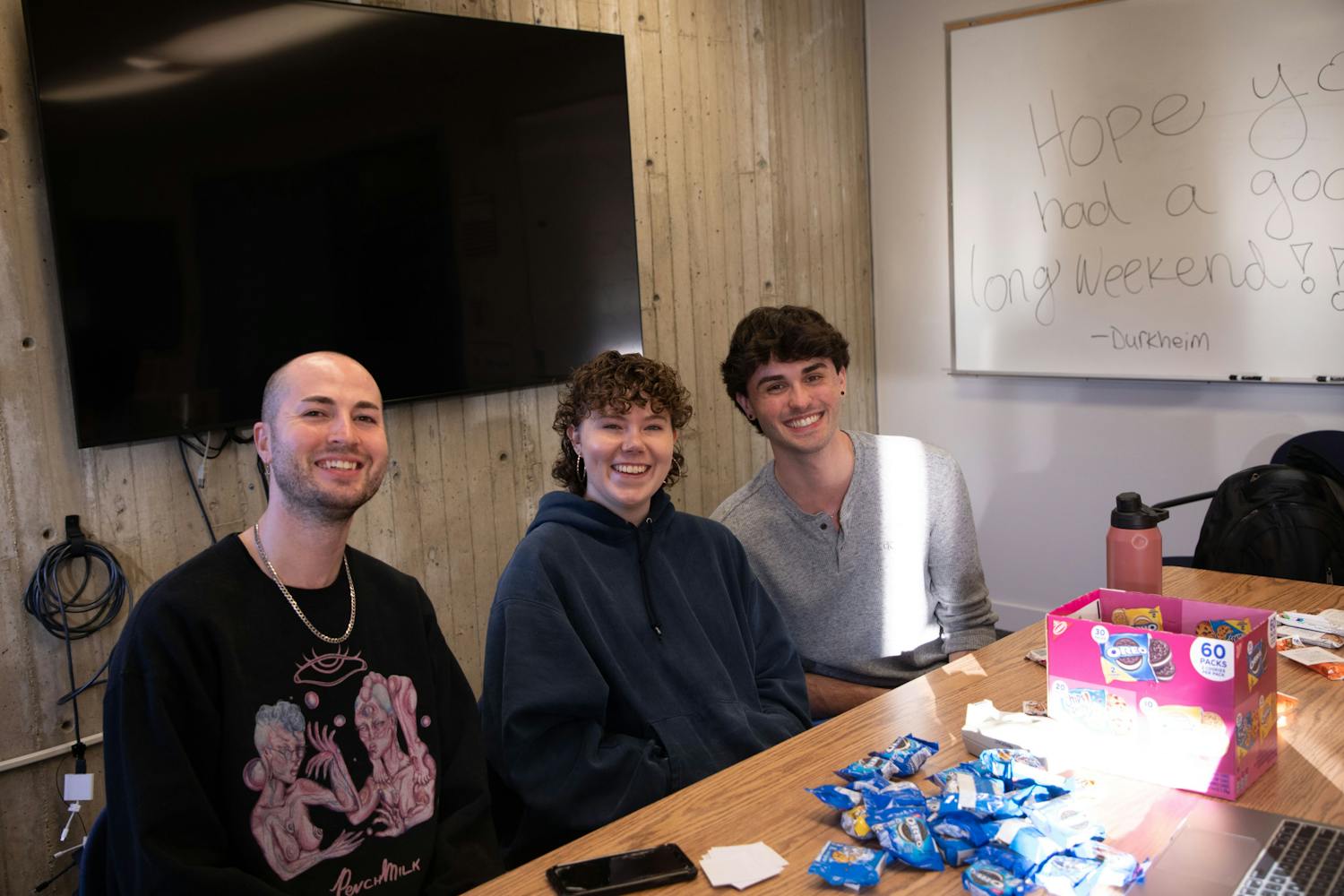Students found more than just beans at the Food Insecurity Network’s second quarterly Beans Bash.
The event, held on Nov. 15 in Western Washington University’s Red Square, consisted of free food for students, as well as resources and conversation surrounding food insecurity at Western.
Alec Villa, a network officer, describes food insecurity as “not having access to reasonably priced, healthy and nutritious food.”
The Food Insecurity Network began in spring 2023 as part of a capstone project for the Advanced Community Engaged Research class taught by Western sociology professor Melissa Osborne.
When the community partner for the project pulled out close to the start of the quarter, the class agreed to research basic needs and security on campus.
Their capstone project formed the Food Insecurity Network.
“My approach towards sociology is that there's no point in doing this if we're not making some sort of impact and engaging in the community,” Osborne said. “The students were passionate about it as well — they didn't want to just write a paper and have it disappear to nowhere, so the team made this list of deliverables, things that they wanted to do, and one of those was the first Beans Bash.”
The network conducted interviews with students regarding their experiences with food insecurity. According to their research, a large number of them underestimated the number of people who were food insecure, didn’t know what it meant or didn’t realize they were food insecure.
In a 2023 study by the National Center for Education Statistics, it was found that over four million university students in the U.S. are food insecure.
Breezy Gough, a student in her final year at Western, said the biggest thing she has learned about food insecurity since discovering the network is that it is ambiguous.
“It’s surprising how quickly food becomes a scarce resource at university,” they said. “Time constraints, such as the high workload that comes with being a university student, makes planning to eat, preparing to eat and buying groceries difficult.”
Food insecurity can also come in the form of a lack of knowledge on budgeting and cooking, especially since people arrive at college with different experiences and skills, said network officer Nate Tatem.
“There is this thought process that you need to be absolutely destitute before you ask for help because somebody else might have it ‘worse off,’” said Brandi Hutton, the Toward Zero Waste program coordinator at Sustainable Connections. “If you're on the line of struggle, and getting a little extra food assistance can help you pay your bills, why would you not take that before you fall into that desperate situation?”
Sustainable Connections has a Food Recovery Program that works with small food producers, such as restaurants, schools, nursing homes and more, to prevent food from ending up in the landfill and instead put it in the hands of community members in need.
The majority of the food recovered through the program ends up in tiny home villages, permanent housing facilities, half-way houses and the community freedge located behind The RE Store.
Western’s Food Insecurity Network acts as a hub of information to combat the obstacles that come with raising costs of living and destigmatize conversations surrounding food insecurity to address it head-on, Villa said.
“Most of the 15 students [from the Capstone project] have graduated,” said Villa. “I think there's only three of us left from it, so one of our main goals this year is to find people to continue the legacy.”
The network now strives to make resources such as food pantries, food banks and SNAP more accessible on campus.
“The bare minimum is comprehensive nutrition,” said Tatem. “But beyond that, we want to try to make sure that people have the autonomy and ability to choose the foods they're eating and not just be stuck. We want them to be thriving, not surviving.”
Other universities have acknowledged the issue of food insecurity on campus and are acting accordingly.
At Central Washington University, leftover food from a dining hall is repackaged and placed in food pantries on campus to supply free meals to the community, taking a step toward being more sustainable and equitable.
Osborne said the network would like to see a “commitment from the university to funding each of the pantries [at Western].”
The Food Insecurity Network meets monthly, meeting next Nov. 29 at 4 p.m. in Arntzen Hall 518.
“I work in food recovery, I know that there's enough food to feed people,” said Hutton. “It's just a matter of getting it in the hands of people.”
For updates on meetings and resources, visit the network here.
Kenna Peterson (she/her) is a campus news reporter for The Front this quarter. She is a third-year journalism pre-major. When she isn't on campus or at work, she can be found hanging out with her cat, Rigatoni, watching horror movies with her roommates or drinking a London fog.
You can contact her at kennapeterson.thefront@gmail.com.









